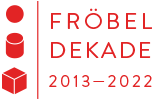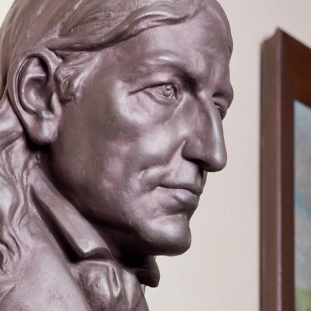Friedrich Fröbel
Friedrich Wilhelm August Fröbel (1782–1852) is considered the father of the kindergarten movement. Fröbel received worldwide recognition through the grounding of the first kindergarten in Blankenburg in 1840. His intensive studies on childhood, personal development and education, as well as the practice of integrated early childhood education, show him to be a pioneer of reform pedagogy, an internationally regarded innovator and a tireless fighter for the rights of children to an education and a harmonious family life.
Fröbel’s musings on early childhood education are as much a reflection of the time in which he lived, as they are original and modern. His work continues to inspire pedagogic thinking today and in recent years, it has been increasingly referred to in academic literature. Led by his students, Fröbel’s work is enjoying worldwide recognition, especially in Austria, Japan, the USA, Korea and Russia. His educational resources modelled from the geometrical forms of sphere, cylinder and cube, and the building blocks that are created when the cube is divided, continue to be popular. Widely distributed, Fröbel kindergartens are defined by their encouragement of play and support of children in their attempts to experience and understand the world. Learn more about Friedrich Fröbel – his life and achievements, his early childhood education theory, as well as the current actuality of his philosophy.




 Fröbel's Rest, Schweina
Fröbel's Rest, Schweina